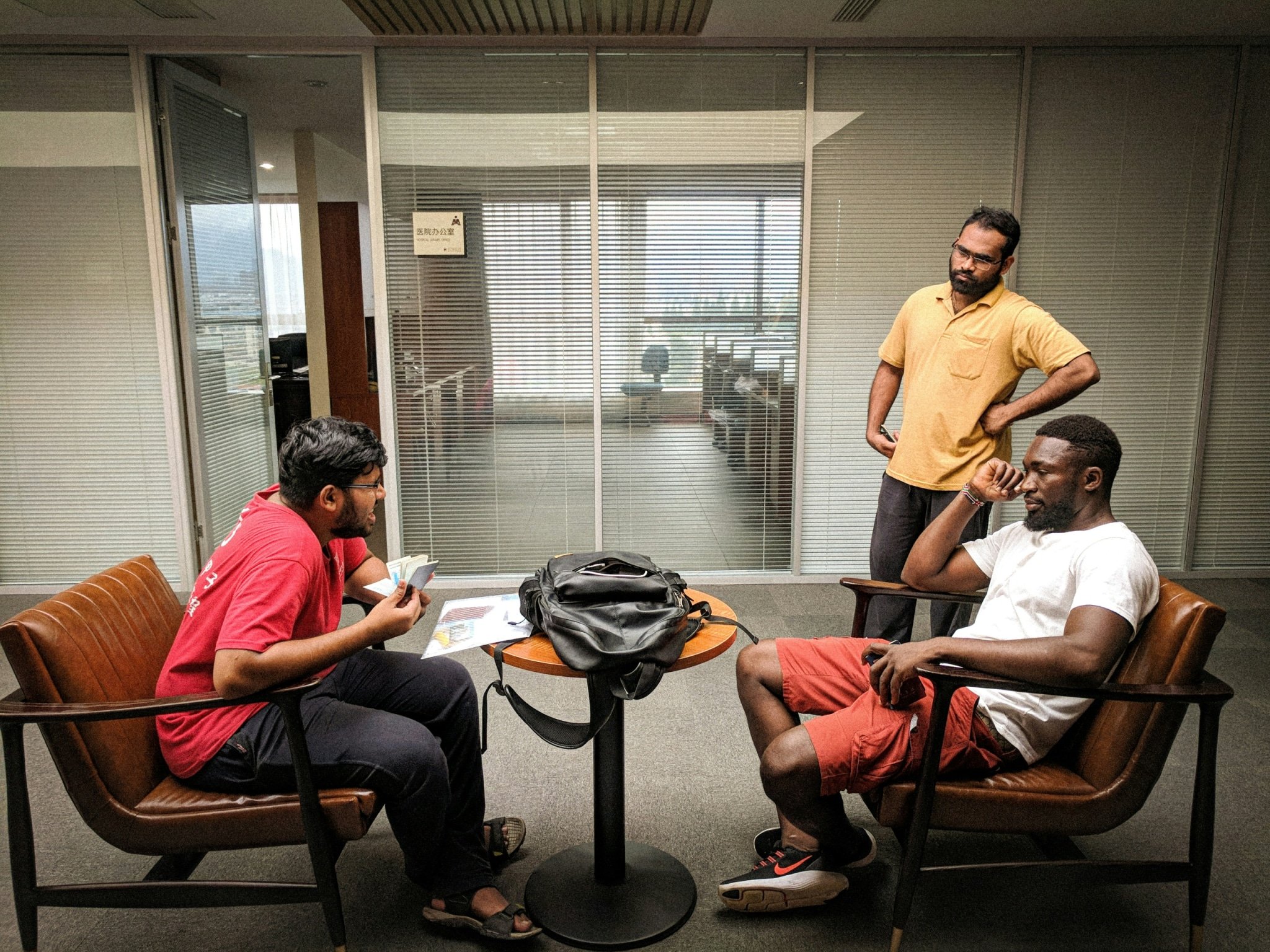
This article is the third in an NPQ series titled The New Asian Diaspora Media: Defending Democracy Locally and Globally. Co-produced with Kavitha Rajagopalan, who directs a program on community journalism at the City University of New York (CUNY), this series highlights how different Asian American communities are using grassroots digital media to meet their communities’ need for trustworthy in-language information amid a media environment distorted by rampant disinformation.
Indonesian Lantern in Philadelphia is one of many Asian American diaspora media outlets. Founded in 2014 by three friends—Didi Prambadi, Wiharta Lim, and myself—the publication aims to inform, empower, and celebrate the US Indonesian diaspora while offering a platform for Indonesians in the United States to share their stories. What started as a printed magazine is now an online publication that reaches thousands of readers.
However, being a publication involves more than publishing articles online. Indeed, the Lantern has become a regular community gathering hub—for example, through our regular community workshops. While my friends and I set out to create a magazine, what we had really done was enter into the community building business.
Building Community One Workshop at a Time
How does a magazine become a community hub? For the Indonesian Lantern, it started during the pandemic, when many readers who were parents reached out to the Lantern team for help with their kids’ online school. Our readers needed help with connecting with the school system’s internet portal, homework, school assignments, and so on.
These requests opened our eyes to how big a problem the digital divide remains among Indonesian American immigrants. Ever since then, we have regularly held workshops for digital literacy. We also use these occasions to engage community members with voter engagement—helping people register to vote, find information on candidates, and understand campaign platforms and policy proposals.
Workshops are just one way that the Lantern helps build understanding and trust with the Indonesian community in Philadelphia.
For example, on July 19, around 50 Indonesian elders gathered at Philadelphia Praise Center’s historic building in South Philly, where the majority of Philadelphia’s Indonesian community lives or works. The Lantern team was at that Indonesian church to give a workshop on how to avoid digital scams. We gave a short presentation in Indonesian and English on how to identify fraudulent and common online scams, assess the credibility of information and protect personal data. Our hope was to help seniors in our community protect themselves against some of the many scams—including online dating and romance scams—that have become pervasive in the Indonesian diaspora. We gave time for attendees to voice any issues or ask for clarification regarding online safety and personalized technology assistance was also provided.
The next Saturday, we conducted the same workshop at St. Thomas Aquinas Catholic church just down the street, for about 40 more Indonesian seniors. The work, in short, is ongoing.
Building Trust
The workshops are just one way that the Lantern helps build understanding and trust with the Indonesian community in Philadelphia. When the Lantern was first launched, it was not easy to get stories from the community. People were reluctant to share information, mainly because many of them at that time were still undocumented and were afraid that their stories, if published, might put them in danger. Even now, many of the more than 10,000 Indonesians in Philadelphia are still undocumented.
Every community needs its own media. This is especially true for immigrants.
Further, two of our three founders are Javanese Muslims, the dominant majority population of Indonesia itself, but a minority of the Indonesian diaspora in South Philly, where there are 13 Indonesian churches but just one mosque within a square-mile radius.
Our publication needed time to gain residents’ trust. Many Indonesians came to Philadelphia after the 2018 political riots in Indonesia that victimized Chinese Indonesian Christians, fleeing anti-Christian violence. Many of them applied for and were granted asylum status. The City of Brotherly Love was chosen by Indonesians and other immigrants because of its relative affordability; its proximity to New York City and other big cities; its diversity (Philadelphia Chinatown, for example, is one of the biggest Chinatown districts in the country); and its sanctuary city status, which makes it easier for undocumented immigrants to access education, healthcare, employment, and to be able to live with dignity. The workshops we have held have been valuable tools to share information; they have also served to build trust across different ethnic groups that in our home country have often been divided from each other.
A Home Away from Home
Every community needs its own media. This is especially true for immigrants, because the mainstream media has limited access to immigrant communities, due to language and cultural barriers. For many diasporic populations in the United States, media also helps connect community members with popular media in their homeland.
The presence of Lantern staff in the community has been vital in building community trust, understanding, and respect
Diasporic media provides a way to connect with members of the community so they can maintain a sense of their identity, heritage, and culture, while also getting news and information in their native language.
Besides workshops on digital literacy, the Lantern has also conducted workshops on making Indonesian shadow puppets and batik, writing workshops and competitions, discussions, movie screenings, and more. We have even produced documentary-style miniature oral histories on Indonesians in South Philly.

We Are the Community
There is a tendency in media, when talking about a community, to treat the subject as an “other.” But at the Lantern, our staff members are part of the Indonesian community in South Philly.
The presence of Lantern staff in the community has been vital in building trust, understanding, and respect. All staff members are bilingual in Indonesian and English, and the website and social media content is also published in both Indonesian and English. All these factors are very important in creating trust and mutual respect between the Lantern and the community.
What Are the Stories?
The stories told to the Lantern are varied. On our YouTube page, you can find 142 video short stories that we have published in addition to our written stories.
A couple of stories stick in my mind. One concerns a single mother of four US-born children who came to our office during the first administration of Donald Trump. She was considering whether to go home to Jakarta.
“But my children don’t speak Indonesian anymore, so they have to go to international schools, and I can’t afford it,” she said. She also mentioned that her eldest child had almost finished college and the three others were in high school.
“I can’t wait until my daughter can sponsor me so I can get a green card,” she said. Initially she agreed to be interviewed on video, but for her safety we agreed to just write her story instead. The Lantern couldn’t solve her dilemma, but it did provide her an outlet to share her story in a way that was safe—and surely in a way that resonated with many households in our community who were having similar conversations.
Another story that stands out for me concerns a woman who had to run away from her abusive American husband. She agreed to share her story to raise awareness of domestic violence. After discussing the best way to navigate the risks, since she was still undocumented, we came to an agreement to just interview her daughter, who was about to graduate high school in South Philly. In her compelling video story, she described running away with her mom from her abusive father. The Lantern team was very honored that these women trusted them with their stories. We also later hosted a two-part workshop on domestic violence issues.
A Broader Asian American Diasporic Media Community
Fortunately, the Lantern doesn’t operate as an island. We are part of a broader ecosystem, including the Every Voice Every Vote program, a citywide coalition in Philadelphia. Through this program we get training on how to report elections effectively and independently; we also can access many resources that we would have difficulty doing on our own, and we partner with other grantees in doing journalistic work on elections. We also get financial and other kinds of support. As a member of this program for about three years, Lantern staff have become more knowledgeable and confident in our work.
We have also been collaborating with other AAPI media in Philadelphia as part of the AAPI Media Network that consists of 16 outlets. We share stories and resources, for example when we fought together against the plan to build an arena in Chinatown.
On the national level, we partner with other AAPI media under the guidance of the CUNY journalism program’s Asian Media Initiative. We are a member of the Local Independent Online News (LION) association, which has a diasporic media subgroup. These networks help outlets support each other and share knowledge and resources.
Sometimes all this work reminds me of when my friends and I were involved in founding The Alliance of Independent Journalists, the first independent journalist union in Indonesia, in 1994. The Soeharto regime at that time banned all the media who tried to criticize the government. Some of my friends were arrested and put in jail for years; I was lucky enough to be able to run away to Germany before returning in 1995.
This experience reinforces that democracy demands a free press. And that a free press cannot be achieved if the communities it serves don’t fight together to defend it.














